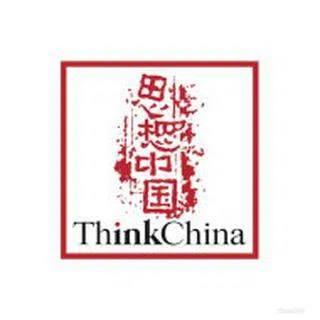Why China ignores the dark side of Kissinger's diplomacy
While lauded as a great diplomat, Henry Kissinger's contributions were marked with controversies, notably in relation to Cambodia, Bangladesh and Chile. Commentator Jin Jianguo looks back at Kissinger's legacy from the prism of historical violence and injustice, and opines on why China's leadership portrays him as a "friend".
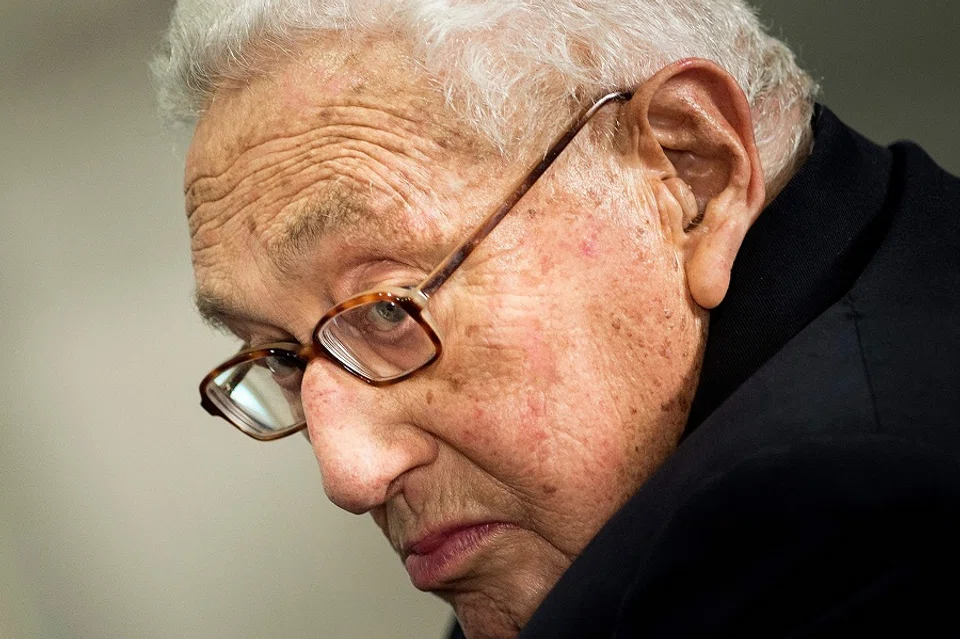
With the recent passing of the outstanding diplomat Henry Kissinger, it is timely to look back at his life. Even though it is a Chinese custom to respect the dead, when it comes to prominent figures like Kissinger, one should not overlook the negative effects he had on several countries just because of his glorious diplomatic accomplishments.
Kissinger's overemphasis of power coupled with his lack of justice and conscience resulted in more than a few negative consequences during his conduct of US foreign policy. At the same time, his influence has tainted human civilisation.
Turning a blind eye
First, Kissinger planned the US's carpet bombing of Cambodia. Between 1969 and 1973, during his tenure as President Richard Nixon's national security adviser and secretary of state, he directed the carpet bombing of large swathes of Cambodia. At that time, US officials claimed that those areas were havens for communist insurgents from South Vietnam as well as North Vietnamese soldiers. Ben Kiernan, a renowned Yale historian who specialises in the US's legacy in Cambodia, estimated that during that period, the US dropped around 500,000 tons of bombs on Cambodia, killing as many as 150,000 civilians.
After declassified documents revealed the extent of the US's attack on Cambodia in the last few decades of Kissinger's life, he was severely criticised for his leading role in the matter, with some even labelling him a "war criminal". He rejected those criticisms and insisted that the Cambodian bombings were milder than subsequent US bombing campaigns.
Greg Grandin, historian and author of Kissinger's Shadow, pointed out that at least one area in Cambodia known to have sizeable concentrations of civilians was bombed nearly 250 times.
... he [Kissinger] chose to believe what the Pakistani military dictator said: the Bengalis are weak people who are easily dominated.
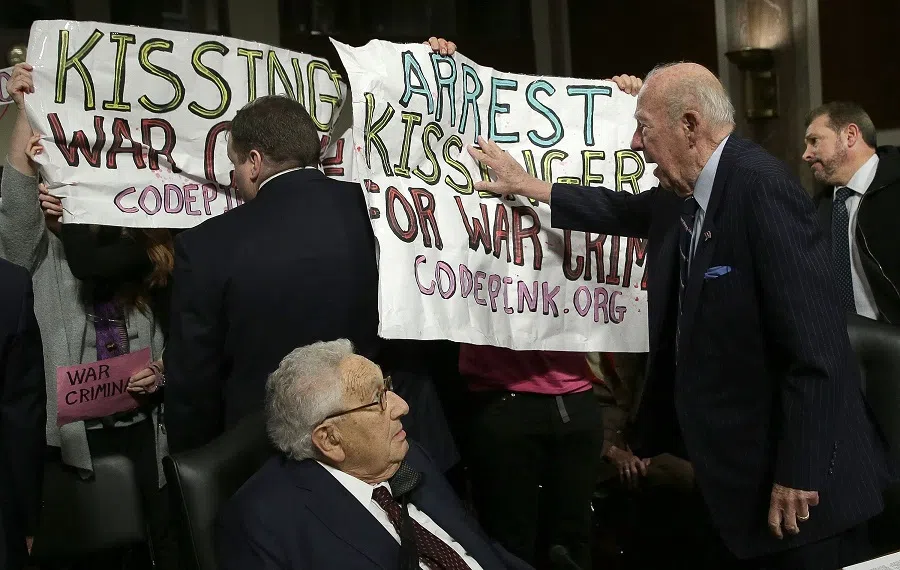
Second, Kissinger turned a blind eye to the humanitarian crisis in Bangladesh. Following the Bengali nationalists' victory in the 1970 democratic elections, Pakistan's junta government began a violent suppression of Bengalis on the night of 25 March 1971 to force them to acquiesce. By June that year, public estimates by the US Department of State showed that nearly 200,000 people were killed. Around 10 million terrified Bengali refugees also fled to India where numerous died from diseases due to overcrowded refugee camps. War eventually broke out between India and Pakistan, and Bangladesh won its independence after Pakistan was routed.
Throughout the incident, Kissinger chose to support the Pakistani military dictatorship. He also decided not to warn the Pakistani generals against firing on their own citizens. Furthermore, he did not urge the generals to accept the election results nor urge them to reach a power-sharing deal with the Bengali leaders to avoid civil war. Kissinger also did not impose conditions on the generals to curb their atrocities, nor did he threaten them with the withdrawal of US support during the period of violence. Instead, he chose to believe what the Pakistani military dictator said: the Bengalis are weak people who are easily dominated.
Kissinger even told Nixon, "The Bengalis aren't very good fighters I guess."
Supporting the Pakistani dictatorship
Throughout the crisis, Kissinger showed disdain towards the Indian people. On 3 June 1971, he said, "Of course they're stimulating the refugees", and blamed the Indians for the Pakistani military crackdown. He then admonished India and said with great contempt, "They are a scavenging people."
On 17 June of the same year, Kissinger told Nixon, "They [Indians] are superb flatterers, Mr. President... That's how they survived 600 years."
Kissinger also expressed his prejudice against Pakistanis. On 10 August 1971, he told Nixon, "The Pakistanis are fine people, but they are primitive in their mental structure."
Kissinger has never apologised for his acts. In fact, he used realist arguments to defend his deeds and gains in the conduct of US foreign policy.
Third, Kissinger was behind the Chilean military coup. In the 1970s, the US government sought to destabilise Chile, which was then under the socialist government of the democratically elected Salvador Allende. In 1973, Allende lost power in a coup d'etat and General Augusto Pinochet replaced him. Even though democracy in Chile was threatened, Kissinger pushed for greater support for the new Chilean government. When his staff notified him about reports of human rights abuse there, he turned a deaf ear and instead said, "This government is better for us than Allende was."
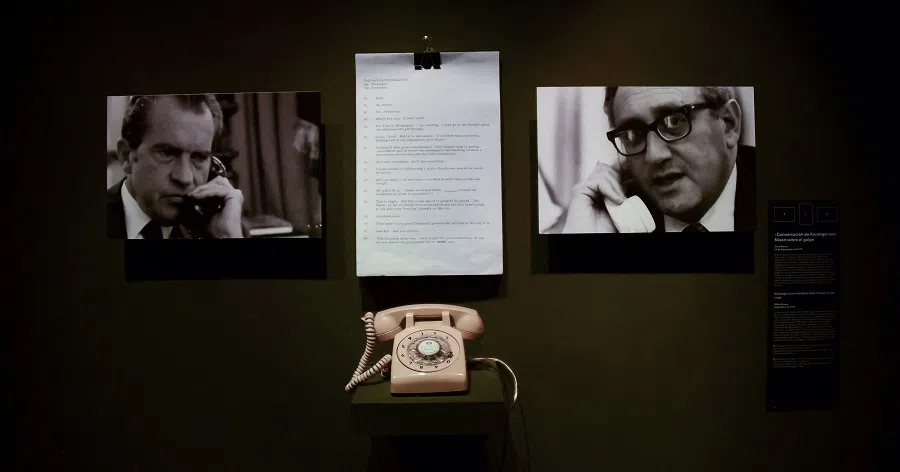
It is believed that the Pinochet government carried out at least 3,197 murders and tortured around 29,000 people, with most of the killings taking place in 1973 when Kissinger was most supportive of Pinochet. The general was also alleged to be involved in a 1976 car explosion in Washington in which the former minister for foreign affairs of Chile was killed.
Pinochet held on to power until 1990. Even though he faced numerous legal challenges in old age, his deteriorating health meant that he was unable to appear in court, and he passed away in 2006. Thereafter, declassified documents revealed that Kissinger was not only aware of the junta violence, but actively encouraged it.
Realist diplomacy with no bottom line
Other declassified documents also showed that Kissinger supported the Argentinian junta in 1974. During that period, as many as 30,000 people were killed by the military or had "disappeared" during the "Dirty War". Was the master realist ever pricked by his conscience? Kissinger has never apologised for his acts. In fact, he used realist arguments to defend his deeds and gains in the conduct of US foreign policy.
Realist diplomacy does not mean a total disregard of one's conscience and the bottom line. Kissinger's alleged crimes occurred decades before the establishment of the International Criminal Court in the Hague in 1998, otherwise, he should have faced trial there.
Kissinger is held in high regard by the Chinese because China also practises realism in international relations. So long as Kissinger brought benefits, China ignored his dark side.
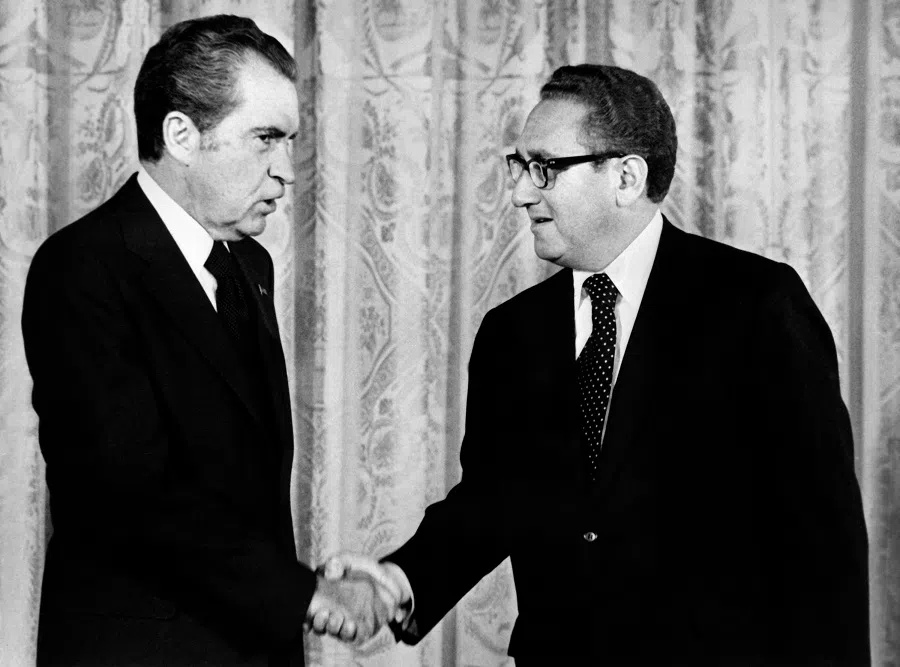
The late Christopher Hitchens pointed out in his 2001 book, The Trial of Henry Kissinger, that "Kissinger should be prosecuted under universal jurisdiction for ordering and sanctioning the destruction of civilian populations, the assassination of inconvenient politicians, the kidnapping and disappearance of soldiers and journalists and clerics".
Gary Bass, a professor at Princeton University and author of The Blood Telegram: Nixon, Kissinger, and a Forgotten Genocide, wrote in The Atlantic about Kissinger's callousness towards the most helpless people in the world. Bass questioned how many of his eulogists would grapple with Kissinger's full record in Vietnam, Cambodia, Laos, Bangladesh, Chile, Argentina, East Timor, Cyprus and other places.
Fourth, while Kissinger contributed towards China-US relations, he also treated China as a business undertaking. Kissinger is held in high regard by the Chinese because China also practises realism in international relations. So long as Kissinger brought benefits, China ignored his dark side. While China is always criticising US hegemony, it stopped short of going after Kissinger for his role in it. The logic behind Kissinger's realism is to blatantly exercise double standards in all matters that benefit the US.
Losing influence over the US's China policy
Kissinger was a guest of several generations of Chinese leaders. During his lifetime, he visited China over a hundred times, the most among American politicians. With the global recognition given to his monograph, On China, he won the praise of China.
Following his retirement from politics, Kissinger used his influence on China to set up a consulting firm to reap the best of both worlds by lobbying both the Chinese and the US governments. He had very close links to industry titans such as Boeing, BlackRock and China National Offshore Oil Corporation.
In 2002, scrutiny over Kissinger's integrity peaked as he was questioned by many parties, with the former US Secretary of State Madeleine Albright even urging him to disclose his client list. In July 2009, four senior employees of the Australian Rio Tinto Group were arrested in China. The company paid Kissinger nearly US$5 million to consult on the case.
Even though Kissinger was lauded "to live on forever in the memory of all Chinese citizens", he had his fair share of detractors and admirers, so he cannot be simply labelled as China's friend or foe.
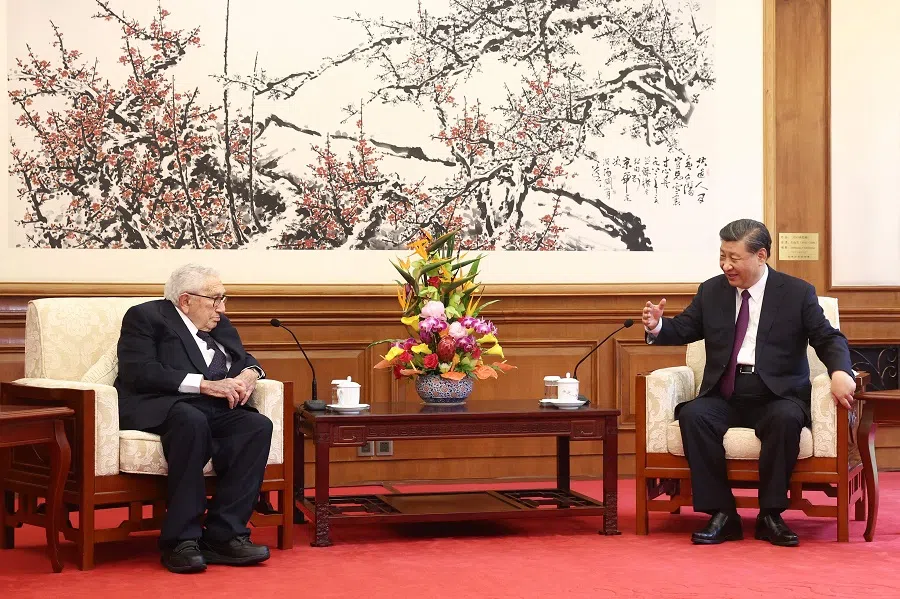
Following the reversal in the US's attitude towards China, Isaac Stone Fisher claimed in his 2022 book, America Second: How America's Elites Are Making China Stronger, that Kissinger is the greatest threat to American interests. Fisher argued that over the past four decades, Kissinger leveraged the normalisation of corrupt behaviour among retired US diplomats to mislead the US into having too rosy a picture of China. The negative impact that can be attributed to Kissinger is greater than that of any Chinese businessman, hacker or spy.
Fisher's book was well received in the US and provided the background for how Kissinger lost his influence over the US's China policy. In fact, both the Trump and Biden administrations distrust Kissinger. Despite the pomp with which China received him, Kissinger's trip there in July this year did not affect China-US relations.
Even though Kissinger was lauded "to live on forever in the memory of all Chinese citizens", he had his fair share of detractors and admirers, so he cannot be simply labelled as China's friend or foe. His suggestion in 2018 for the US to join hands with Russia against China proves that he will always put US interests first and cast China aside immediately at key moments.
The era of China-US relations that Kissinger symbolised is long gone as both great powers explore peaceful means to compete with each other in future. China should rely on the usual diplomatic channels instead of personal ties with individuals to manage its bilateral relations with the US.
This article was first published in Lianhe Zaobao as "基辛格外交生涯的灰暗面".
